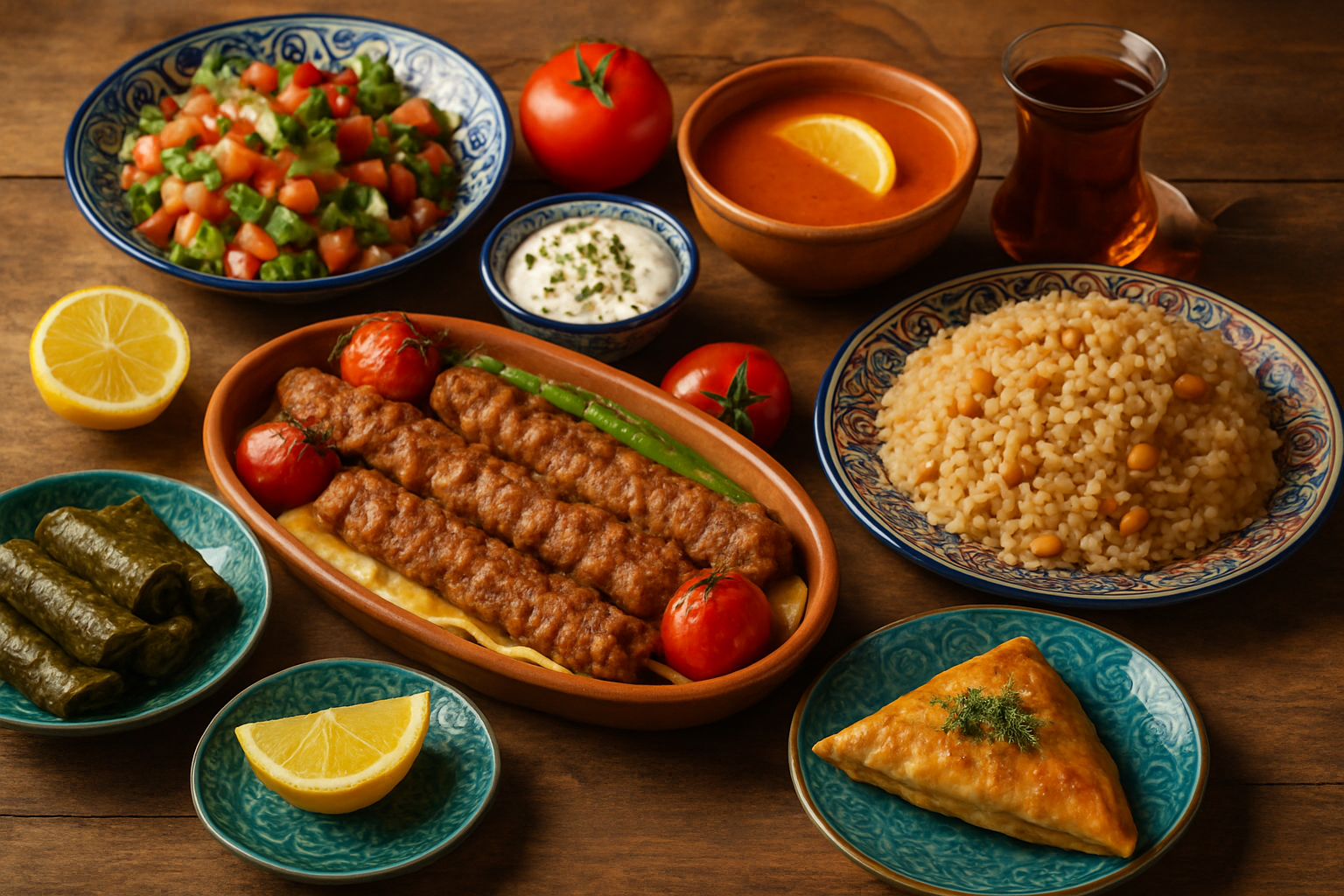Exploring Turkish Cuisine: Must-Try Dishes

Moving to Türkiye brings excitement, adventure, and sometimes a little uncertainty — especially when it comes to discovering new food. Settling in a new country means adapting to fresh flavors, dining customs, and a marketplace that differs from home. Many modern expats face the challenge of navigating local menus, understanding ingredients, or knowing where to start. Turkish cuisine, with its rich heritage and regional influences, opens the door to a sensory journey that can turn every meal into a memorable experience. Here’s how diving into Turkish dishes can help bridge the gap between being new and feeling at home, one bite at a time.
Classic Kebabs: More Than Just Grilled Meat
Kebab might conjure up images of skewered meat, but in Türkiye, the term covers a colorful spectrum. From the bustling street corners of Istanbul to intimate Anatolian family tables, kebabs come in diverse styles that go far beyond the standard doner.
- Adana Kebab: Spicy ground lamb, hand-mixed with red pepper and herbs, grilled on skewers and served with lavash bread.
- Şiş Kebab: Cubes of marinated chicken or lamb, traditionally cooked over charcoal for a smoky flavor.
- İskender Kebab: Slices of doner atop fluffy pide bread, smothered in tomato sauce, with melted sheep butter and cool yogurt.
Trying different kebabs is practical for newcomers because they are widely available, clearly presented, and often easy to customize. Kebabs pair well with familiar accompaniments like rice or salad, making for a comfortable first step into local cuisine.
Hearty Breakfasts: A New Morning Ritual
Turkish breakfast, or “kahvaltı”, rewrites morning routines. Instead of the usual toast or cereal, tables fill with small plates, encouraging variety and sharing. Sampling a real Turkish breakfast helps expats bond with neighbors, foster friendships, and start the day with energy.
- White cheese and olives: Salty, tangy, and always fresh.
- Menemen: Scrambled eggs with tomatoes, peppers, and the option for spicy sausage.
- Honey with clotted cream: Locally sourced and served with freshly baked bread.
- Simits: Crunchy, sesame-coated rings that are iconic in cafés and bakeries.
Embracing Turkish breakfast introduces new habits like lingering over tea, mixing and matching tastes, and taking time in the morning. It’s a practical way to adapt, form routines, and immerse in local culture.
Vegetarian Classics: Flavors Without Meat
Türkiye’s culinary landscape is surprisingly rich in plant-based options. Many expats search for meatless meals and discover an entire genre of hearty vegetable dishes that satisfy everyone at the table.
- Mercimek Çorbası: Red lentil soup, thick and nourishing, flavored with lemon and cumin.
- Imam Bayıldı: Eggplants stuffed with onions, garlic, and tomatoes, gently cooked in olive oil.
- Zeytinyağlılar: Seasonal vegetables like green beans or artichokes simmered in olive oil and herbs.
These staples rely on simple, natural ingredients and are easy for new arrivals to order or create at home. They suit a variety of diets, making them perfect for family meals or entertaining mixed groups.
Sweet Treats: Satisfying Sugar Cravings
Turkish sweets set themselves apart with delicate preparation and distinctive regional differences. Trying them adds a festive touch to daily life and gives expats plenty to talk about with colleagues or friends.
- Baklava: Paper-thin pastry, layered with pistachios or walnuts and drizzled with lemony syrup.
- Künefe: Warm dessert made with shredded pastry and soft cheese, topped with pistachios and a hint of rose water.
- Lokum: Soft, chewy Turkish delight in flavors like rose, pomegranate, and hazelnut.
Most Turkish desserts are available in cafés, bakeries, and markets nationwide. Their bite-sized nature makes it easy to share and sample, fostering new food conversations and shared memories.
Street Food Adventures: Quick and Tasty Solutions
Every city and small town in Türkiye features street food that’s accessible, affordable, and packed with personality. Street foods suit busy expat lifestyles, providing convenient snacks and lunches for on-the-go days.
- Lahmacun: Thin, crispy flatbread topped with seasoned minced meat, fresh herbs, and lemon.
- Döner Dürüm: Marinated meat wrapped in flatbread, enhanced with vegetables and spicy sauces.
- Midye Dolma: Stuffed mussels flavored with spiced rice — a staple in coastal towns.
- Kumpir: A giant baked potato loaded with toppings, from cheese and sausage to olives and pickles.
Starting with street food gives expats a chance to sample varied dishes in an informal setting. It’s practical for anyone easing into local flavors with limited time or wanting to eat like a local during lunch breaks or weekend strolls.
Exploring Turkish cuisine isn’t just about eating well — it’s a hands-on approach to integration and discovery. Each dish introduces a piece of tradition, turning ordinary meals into opportunities for connection and creating a sense of belonging. As expats settle into their new lives, food becomes a bridge, proving that learning and adapting can be deliciously rewarding.
